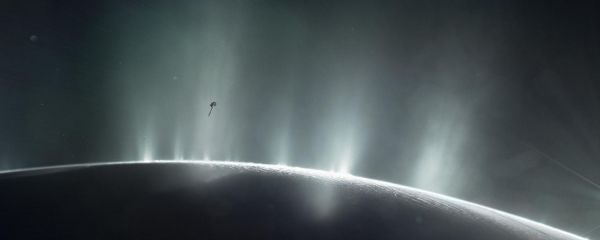New data collected from the Cassini spacecraft have revealed complex organic molecules originating from Saturn’s icy moon Enceladus, strengthening the idea that this ocean world hosts conditions suitable for life.
CU Boulder Assistant Professor Sascha Kempf and research associate Sean Hsu, both in the Laboratory for Atmospheric and Space Physics (LASP), co-authored the study.
Very little was known about Enceladus prior to 2005—the year when Cassini first flew by. Since then, it has become a continuous source of surprises, with secrets still being revealed even now, after the mission end.
During the mission’s incredible career, scientists discovered that 500 kilometer-wide Enceladus has a massive sub-surface ocean hidden underneath a thick icy crust, with evidence pointing to powerful hydrothermal vents on the seabed that mix up material from the moon’s water-filled, porous core with the ocean water.
Continue reading at University of Colorado - Boulder.
Image via University of Colorado - Boulder.


